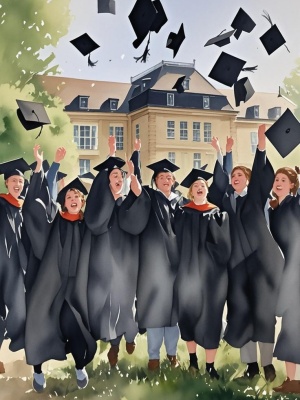The Art of Painting Faces with Watercolors: Techniques and Challenges
Watercolor painting is a delicate and expressive medium that brings life to portraits in a unique way. When it comes to painting faces with watercolors, artists face both opportunities and challenges. This article explores the intricacies of watercolor face painting, offering solutions to common problems and highlighting techniques to master this beautiful art form.
Understanding the Basics of Watercolor Face Painting
Before diving into complex techniques, it's essential to grasp the fundamentals of watercolor face painting. Watercolors are transparent and fluid, which makes them perfect for creating soft, ethereal portraits. However, this same quality can pose challenges when painting detailed facial features.
Key Characteristics of Watercolor Portraits
- Transparency creates luminous skin tones
- Fluidity allows for soft blending
- Quick drying time requires efficient work
- Layering technique builds depth and dimension
For beginners looking to explore more about painting techniques, our AI Painting Guide offers valuable insights into digital and traditional methods.
Common Challenges in Watercolor Face Painting
Painting faces with watercolors presents unique obstacles that artists must overcome. Understanding these challenges is the first step toward creating stunning watercolor portraits.
Problem-Solution Matrix for Watercolor Faces

| Problem | Solution |
|---|---|
| Muddy skin tones | Use limited color palette and clean water |
| Overworked areas | Work quickly and let layers dry completely |
| Lost facial features | Preserve highlights and use negative painting |
| Flat appearance | Build up values through glazing |
For more advanced techniques in portrait transformation, check out our Portrait to Art Detail guide.
Essential Techniques for Watercolor Portraits
Mastering specific techniques can elevate your watercolor face paintings from amateur to professional level. These methods help capture the subtle nuances of human features.
Wet-on-Wet Technique
This fundamental watercolor method involves applying pigment to wet paper, creating soft blends perfect for skin tones. It's particularly effective for the initial washes that establish the basic facial structure.
Dry Brush Technique
For detailed features like eyelashes, eyebrows, and fine wrinkles, the dry brush technique provides the necessary control. This method uses minimal water to create textured, precise strokes.
Glazing for Depth

Building up transparent layers (glazing) creates depth in facial features. Each subsequent layer modifies the one beneath, allowing for subtle adjustments in skin tone and shadow.
Color Theory for Skin Tones
Creating realistic skin tones with watercolors requires understanding color theory and pigment behavior. Contrary to popular belief, skin isn't just various shades of brown or peach.
- Start with a light wash of yellow ochre or raw sienna as a base
- Add subtle reds (like permanent rose) for cheeks and lips
- Introduce cool blues and greens in shadow areas
- Use burnt sienna or venetian red for deeper skin tones
According to experts at Handprint, a renowned watercolor resource, the key to vibrant skin tones lies in maintaining color transparency and avoiding opaque mixtures.
Capturing Facial Expressions

The true magic of watercolor face painting lies in capturing emotion and personality. Subtle variations in brushwork can convey a wide range of expressions.

Tips for Expressive Portraits
- Study the proportions of different facial expressions
- Exaggerate subtle features slightly for emotional impact
- Use directional brushstrokes to suggest mood
- Leave some areas undefined to engage the viewer's imagination
Conclusion: The Beauty of Watercolor Faces
Watercolor face painting is a rewarding challenge that combines technical skill with artistic expression. While the medium presents unique difficulties, the solutions we've explored - from proper technique to color theory - can help artists create stunning, emotive portraits. Whether you're a beginner or experienced painter, continuous practice and study of the human face will lead to beautiful results.
For more artistic inspiration and techniques, visit our gallery showcasing various portrait styles and interpretations. Remember, as noted by the Artist's Network, the most successful watercolor portraits balance technical accuracy with the medium's natural fluidity and spontaneity.